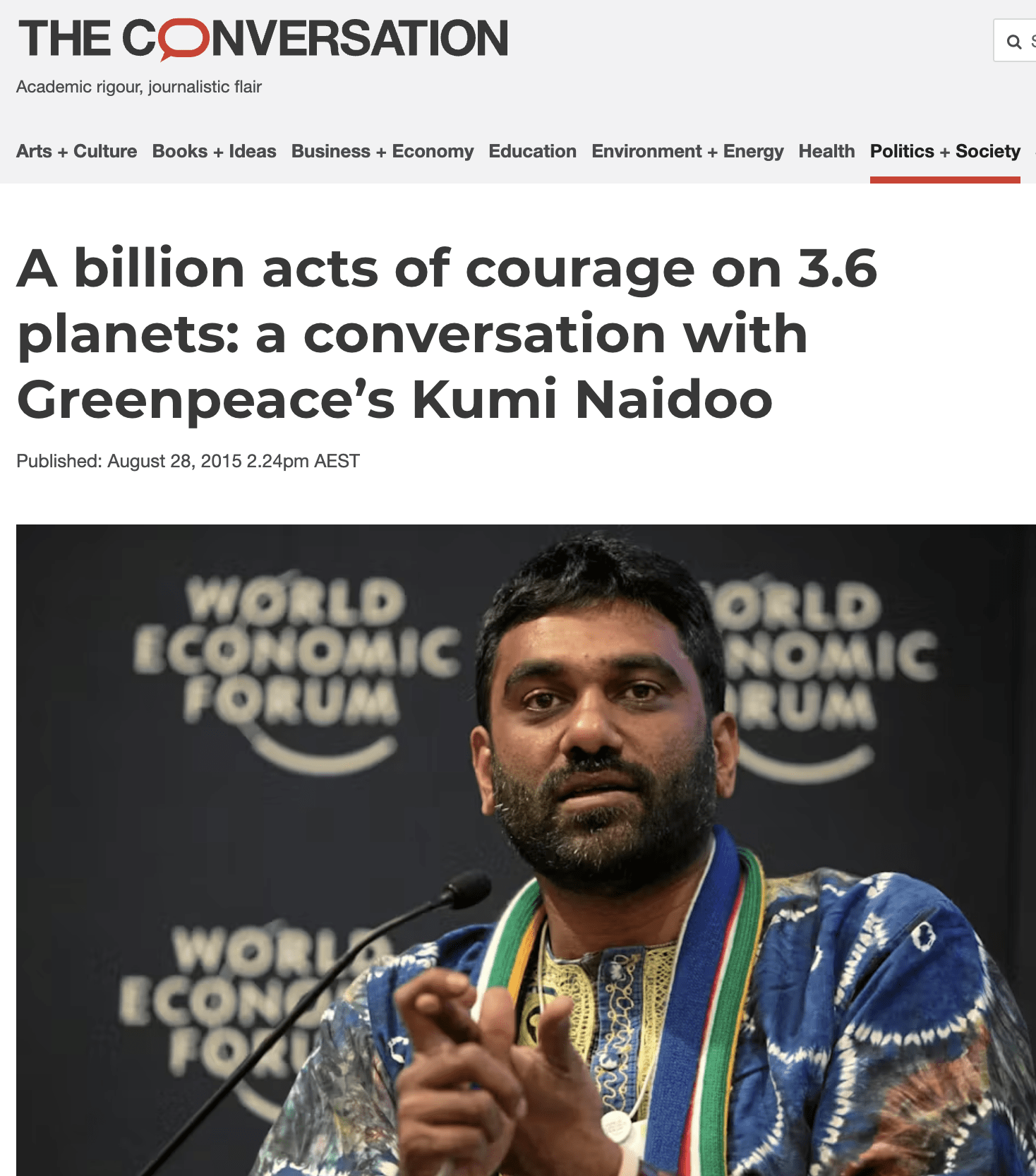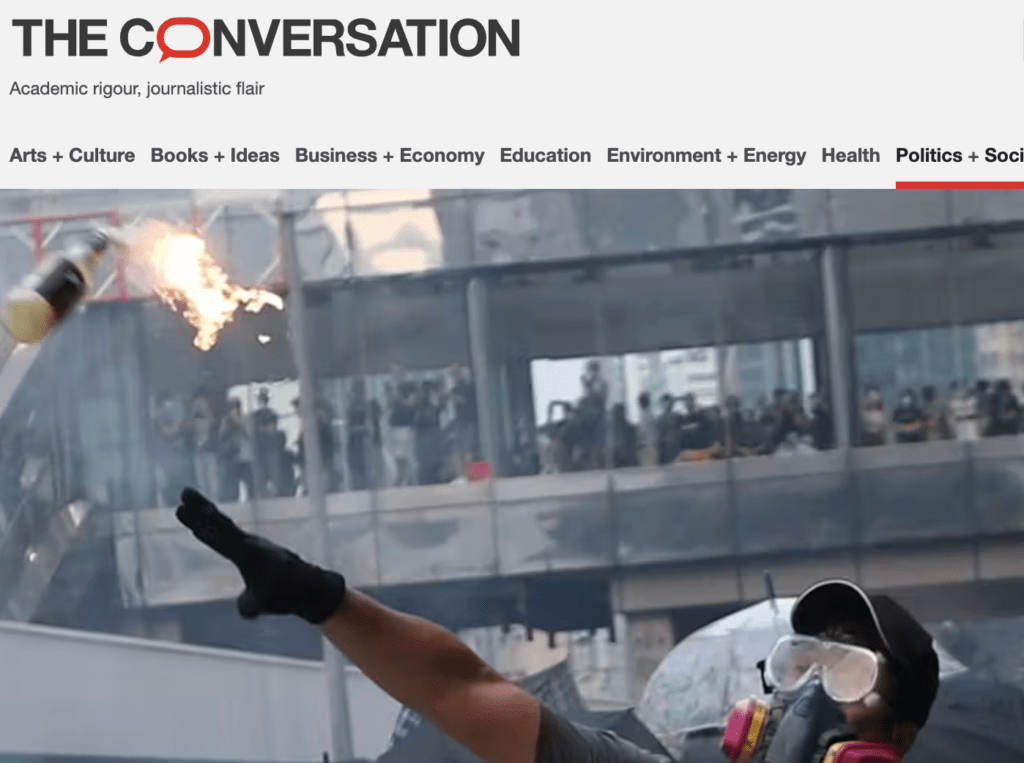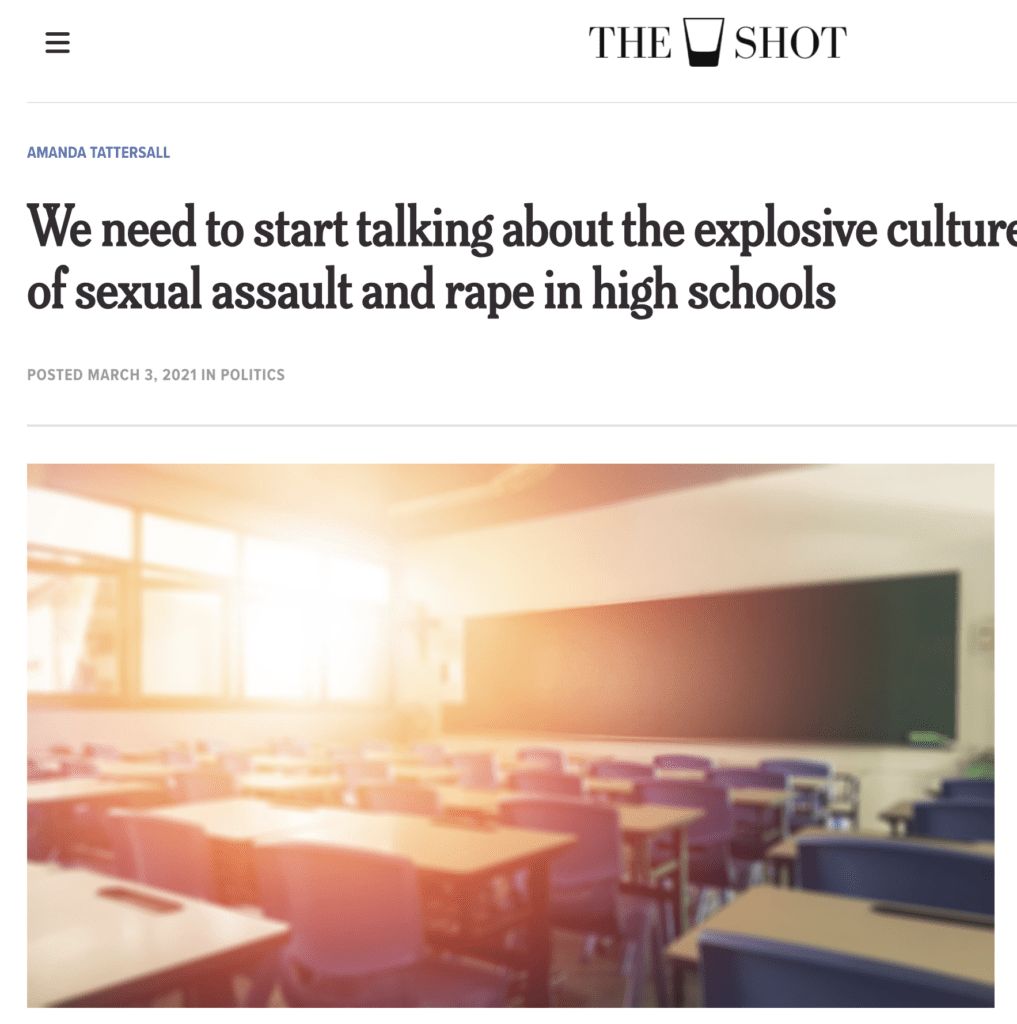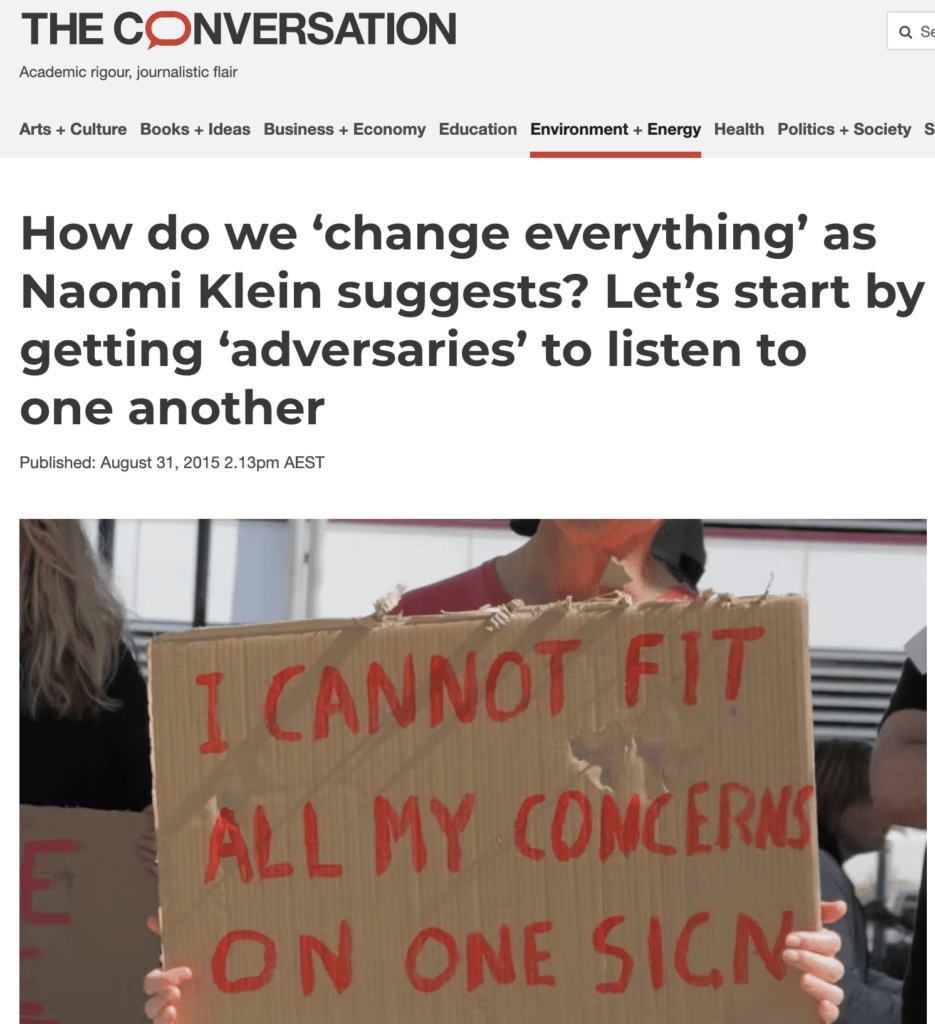Blogs & Speeches
A billion acts of courage on 3.6 planets: a conversation with Greenpeace’s Kumi Naidoo
Unpacking how to change the world with the head of Greenpeace International.
A conversation about how to change the world with the head of Greenpeace International.
Citation:
Tattersall, A. (2015) A billion acts of courage on 3.6 planets: a conversation with Greenpeace’s Kumi Naidoo. Conversation, Aug 28.
Overview
Born in South Africa, Greenpeace International’s executive director Kumi Naidoo became involved in his country’s liberation struggle at the age of 15. He has a deep and broad experience of democratic struggles for justice and sustainability across the world. Naidoo is a former Rhodes Scholar and holds a doctorate in political sociology. Edited extracts from his recent interview with the author follow.
Growing up in apartheid South Africa, environmentalism was what rich white people did. It was something you participated in only if you had food in your stomach and a roof over your head.
However, after being the chair of a global campaign against poverty for several years, I learnt that, actually, poverty is exacerbated by environmental destruction. In fact, the struggle to end poverty and the struggle to avert catastrophic climate change can, must and should be seen as two sides of the same coin.
Decades ago, the feminist movement gave us a powerful concept – intersectionality. If you want to advance gender equality, you need to know how gender intersects with race, class, ability, religion and sexuality. And so with Greenpeace. We are an environmental organisation and we won’t deviate from that.
But to be a good environmental organisation, we need to understand how our environmentalism intersects with other issues of inequality, gender, geopolitics, peace and the economy.
In 2002 the CIA and the Pentagon presented a paper to George W. Bush, reporting that in the coming decades the biggest threat to peace and security will derive from the impacts of climate change. Though my continent of Africa has been the least responsible for harmful emissions, we are paying the first and most brutal price for climate impacts.
The genocide in Darfur was the first major resource war brought about by climate change. According to UN Secretary-General Ban Ki-moon, Lake Chad, one of the largest inland seas in the world, has shrunk to the size of a pond. At the same time, the Sahara desert, which already covers much of North Africa, is marching southward at a rate of a mile a year.
This combination of water and land scarcity results in food scarcity, which is often the trigger that allows opportunistic politicians to lead us down the path to chaos and tragedy.
The good news
The good news is that we have won the argument. For eight years, Bush denied that humans caused climate change. But today, even Tony Abbott cannot claim that climate change is not real. However, our political and business leaders still suffer from an acute case of cognitive dissonance and inaction.
To avoid catastrophic climate change we have to ensure that our planet does not exceed two degrees of warming from the beginning of the industrial period (when we started to burn oil, coal and gas) into the future. Already, we are almost halfway. From zero to two degrees, we sit at 0.8. In the last decade we have had more than a 100% increase in extreme weather events.
Abbott, along with all other political leaders from developed and developing countries, needs to realise that they are not going to get away with baby steps or incremental thinking in the right direction. We need significant and fundamental transformation.

More work

With no end in sight and the world losing interest, the Hong Kong protesters need a new script
A look at the Hong Kong protests in 2019 – and the challenges they faced in sustaining a…

We need to start talking about the explosive culture of sexual assault and rape in high schools
What it might take to be a “changemaker” when it comes to sexual assult.

How do we ‘change everything’ as Naomi Klein suggests? Let’s start by getting ‘adversaries’ to listen to one another
The kind of social movement required to respond to climate change will need to be far broader and…